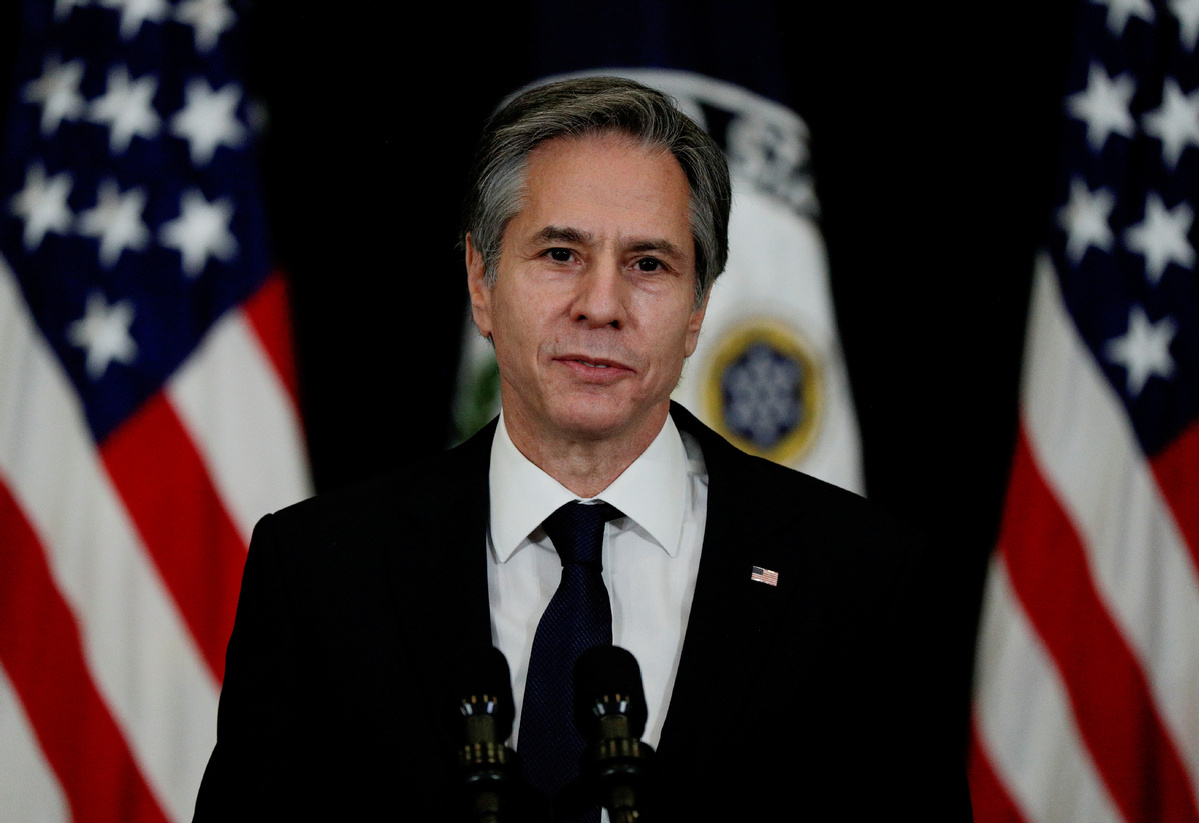US faces choice of great import: China Daily editorial
chinadaily.com.cn | Updated: 2021-02-18 19:43

While cooperation for a post-pandemic recovery has become a central topic in the socially distanced diplomacy of most countries, some seem willing to act to the contrary.
US Secretary of State Antony Blinken's virtual meeting with his counterparts of Australia, Japan and India on Thursday being a case in point.
That the Joe Biden administration has taken the initiative to continue promoting the so-called Quad has driven home the message that it is a jackal at home in the former lair of another.
All of the "Quad" members are major trade partners of China and cooperate with it on many fronts and within multiple bilateral and multilateral mechanisms. As major economies in the region, their cooperation is naturally growing.
Yet despite this, the Biden administration has seized the trowel from its predecessor and is mortaring bricks in an attempt to build a seawall with which to protect its regional influence and hegemony.
Although the US president once pointed out that the United States is ready to hold frank and constructive conversations with China to strengthen mutual understanding and avoid misjudgment, the promotion of the Quad, among other things, belies those words.
Sino-US relations, which should have been enjoying a window of opportunity for improvement, are instead realizing an accumulation of unfavorable elements that threatens to plunge them to a new nadir.
If Washington really wants to avoid conflict, it is the one that needs to stop what it is doing and undo what it has already done.
The European allies of the US have made it clear they are opposed to a new Cold War. The US' allies and partners in Asia should do the same.
China's national rejuvenation is not a threat. It will contribute to the common development of the world. The US being no exception. China will reciprocally benefit from this and it has no reasons to regard the US as an enemy unless Washington sets the US up as one.
Relations between China and the US are at a crossroad, and the coming four years will be crucial to how they evolve, whether for better or for worse. During that period the gap between the world's top two economies will become smaller, increasing the anxieties of some in the US.
If his administration can really live up to Biden's words and work for greater understanding, it might promote a new model of major-country relations, otherwise the world will face the risks and uncertainties of a new Cold War that so few want.
























